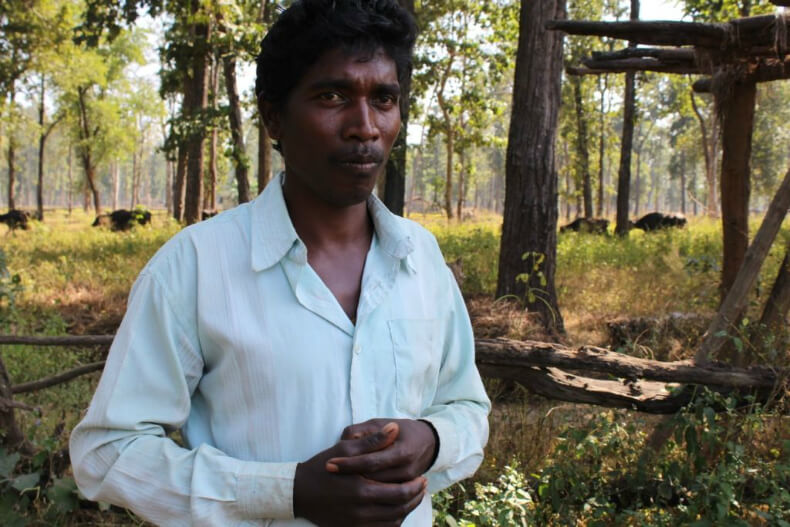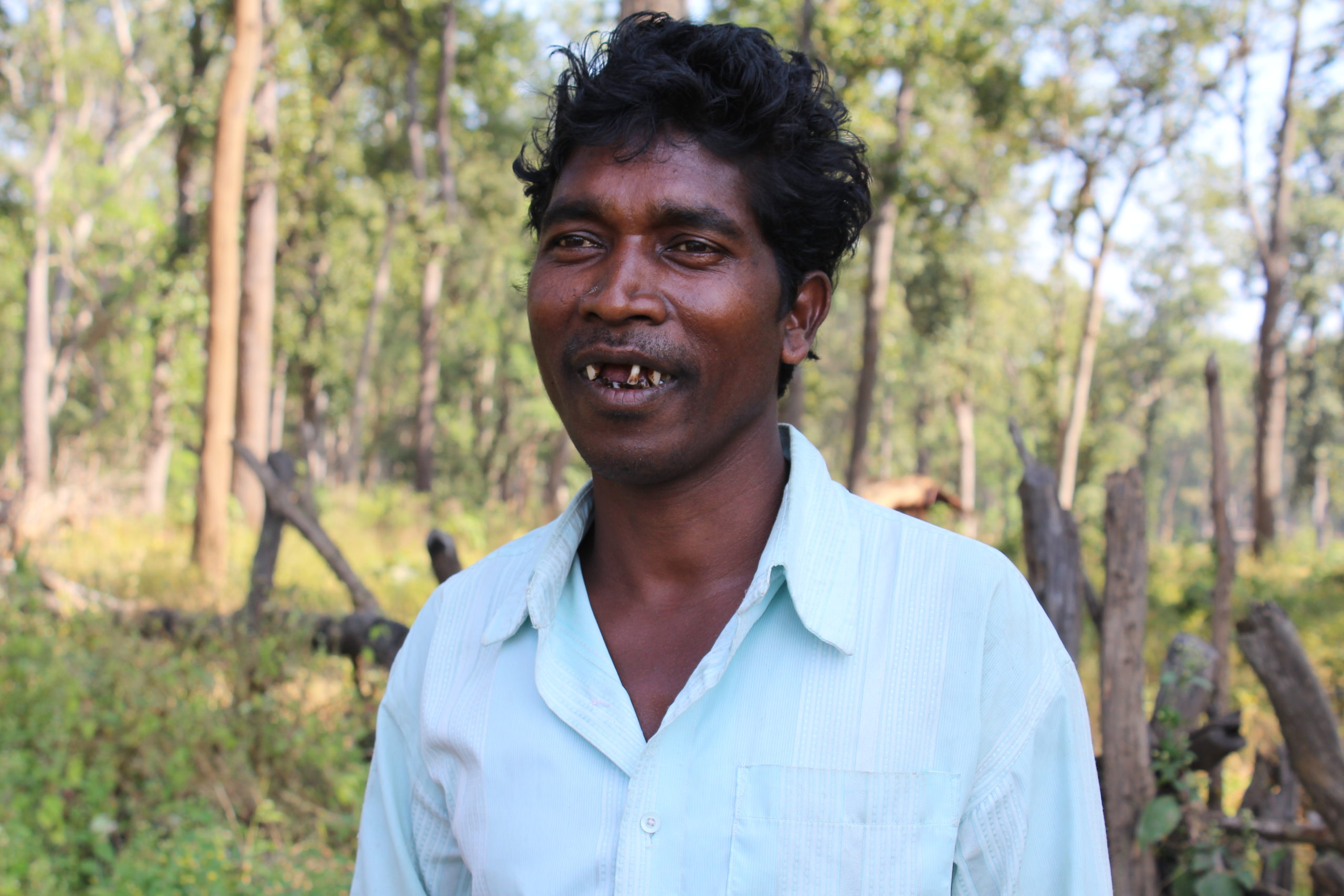Writing and photography by Harriet Paintin

The evictions of Adivasi communities (India’s tribal population) is, and always has been, illegal under International Human Rights Law and the Indian Constitution, and yet it continues unnoticed by the international community, condoned by widely support conservation organisations like WWF. The justification given for these evictions is that Adivasi communities are the ‘enemy’ of conservation, people cannot live in the jungle without harming it. This is scientifically incorrect and the true enemy of conservation in places like India’s national parks are the urban western and domestic tourists on tiger safaris in their open top jeeps, spitting out petrol fumes, with their camera lenses and piles of plastic water bottles.
The long-term psychological trauma of being torn from the land which your community has cherished for countless generations is something very difficult for us, those who have lived our lives surrounded by cities and technology, to understand. Shakti Baiga lives in a village in the Core Zone of Achankmar National Park in Chhattisgarh, central India. His village has been given notice of their upcoming eviction, and the villagers (all members of the Baiga community, one of the most vulnerable tribes) are united in their refusal to leave their village.
“The Forest Department are harassing us too much, and they are forcing us to leave our village. They say to us, “how can you possibly live here in the jungle? There is nothing for you here. You need to leave here, you can’t get anything you need from the jungle.” But we have been here for more than 4 generations and the jungle gives us everything we need. You will never find land anywhere like the land we have here.
He tells us we will have a bright future. But if city people don’t even have a bright future then how will we? We’ve been to the relocated villages, we’ve seen the land there and the tiny crops that they yield. The land is full of rocks. If we go there then how will our children’s futures be bright?
Our jungle gives us everything we need. We take Beheri, Kanda, Lorengi (minor forest produce, small plants, roots, flowers, which adivasis eat), everything. There is so much life force in the food that our ancestors ate, there is nothing like this in the city.
If we go to the city then we get so ill, but if city people come to our jungle then they get pure food, air and water. Eat our rice and see how it is so much better than the city rice. Good nutritious food like that which we get from our jungle keeps us strong and healthy and protects us from illnesses.
City food and water, on the other hand, is full of pesticides and other chemicals. The natural fertiliser that we take from the jungle fertilises us and our food, only with this can we survive.

The Forest Department tells everyone that we harm the jungle. But how could we possibly harm the jungle? Only we can protect the jungle, the jungle only thrives because we are here. If we are sent away the jungle will surely perish, because if we don’t protect the jungle then who will? The Forest Department come here in cars, if there’s a fire in the jungle then how will they reach it in their cars? See for yourself – try and take a car into this jungle and see how far you get. Does a car have the right to go into the jungle? No, cars belong on roads.
Let machines do roadwork, but only people can do the work of the jungle. How can a machine do the work of the jungle? You would have to build roads in the jungle. Even so, a machine can never do this work, only people can, and there’s so many people in this village ready to work.
The Forest Department brought JCBs to make this path in front of our village, when instead we could have made it and earned a bit of money. Where will poor people go? We are dying now, and the government is making money.
Of course tigers and people can live together. How can we be scared of tigers when we are so connected that the tiger lives because of us and we live because of the tiger?
But, we are scared of cities. Or ancestors couldn’t survive in the city and neither can we. How can we possibly flourish in the city? If someone forces us to leave here and go to the city then they are basically killing us.”
